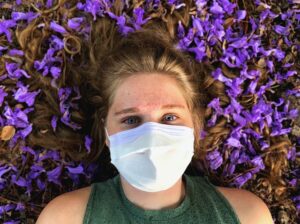
There’s no denying that the coronavirus pandemic has brought the world to its knees, and in a previous post, we saw how it is affecting the poor around the world, but they are not the only ones being forced to change their lifestyle.
As we make our way into this new decade, thanks to the vaccines, things are beginning to change for the better, schools, offices and other public places are reopening; albeit, with restrictions. With that said, some states have recently lifted all restrictions and the pandemic situation doesn’t seem as dire as it was a few months ago as many of us are starting to go out and resume our daily activities, but we still must follow COVID safety protocols. Surely, there is still a long way to go before the world gets back into its pre-pandemic routine, but with immunizations being dispensed worldwide, normalcy is starting to return.
Ever since the coronavirus pandemic began, governments have been forcing everyone to quarantine and as a result, some people began living in a constant state of fear, afraid of getting infected and even dying was not too far from the truth. After all, when you walk out your door, there are invisible creatures waiting to kill you, what’s not to fear? Surely, this is something that sci-fi shows are made of, but, unfortunately, this is real!
So it is within this framework that paranoia can develop and subsequently trigger a panic. For those that worry a lot or have sensitive mindsets, pandemic paranoia can become a reality. They will become fearful and refuse to accept any changes in the COVID situation.
So, what characterizes pandemic paranoia and who is more likely to have it? Let’s find out.
Paranoia Can Lead to Psychosis

Paranoia is defined as the irrational belief that one is being victimized and is a target of premeditated persecution. If this is an ongoing issue with someone, it falls in the realm of an issue with their mental health. These people can lose touch with reality. They believe that everyone is out to get them and is conspiring against them.
One of the categories where this can occur is with people who suffer from anxiety and depression. Additionally, those that are always on edge or worry a lot or tend to lead to negative thinking, also resulting in a state of paranoia.
For these people, their thoughts are mostly baseless but continue anyway and consequently, their fears can get so overwhelming that after some time, the person may even begin to hallucinate, completely losing the sense of what’s real and what’s not.
Another category where paranoia can develop are people who are subjected to prolonged exposure to stress, social deprivation and/or loneliness. And once they fall into this mindset, it can eventually lead to psychosis, which is the medical term for a condition in which the brain begins misprocessing information. As a result, the person loses touch with reality.
Pandemic Paranoia
 Feeling restless and scared due to a rampant and deadly viral infection is understandable. So, naturally, when the COVID took over, many people, especially those psychologically fragile became wholly preoccupied and obsessed with the fear of getting the disease. So much so that after taking all the necessary precautions, their anxiety did not dissipate.
Feeling restless and scared due to a rampant and deadly viral infection is understandable. So, naturally, when the COVID took over, many people, especially those psychologically fragile became wholly preoccupied and obsessed with the fear of getting the disease. So much so that after taking all the necessary precautions, their anxiety did not dissipate.
And now, when things are beginning to get better and the dangers of the coronavirus have gone down, people suffering from pandemic paranoia still feel exposed and afraid of catching it.
People Who Get Pandemic Paranoia and What They Do
When a person’s preoccupation with the coronavirus gets to the point where they aren’t able to differentiate between what’s real and what’s not, they become obsessed with taking preventive measures, which can include:
- Washing hands repeatedly
- Disinfecting household articles again and again
- Staying indoors at all costs
- Getting groceries delivered and then sanitizing all items
- Getting worked up at every cough or sneeze, thinking that they have caught the coronavirus
- Quarantining if they ever leave the house, even with all the protocols
Other activities indicating pandemic paranoia in people include:
- Watching COVID-related news all the time
- Following COVID-related mortality stats
- Talking about the pandemic with every other person they speak to over the phone or via messages
Parents with Pandemic Paranoia
People with pandemic paranoia don’t just affect their lives, but everyone else who lives with them. They demand their cohabitants perform similar rituals and avoid social contact. Being forced to do actions driven by the irrational fears of a family member is hard to understand for most people, but it’s unfathomable for children whose parents have become this way.
Parents with pandemic paranoia force their kids to do unnecessary things, such as:
- Keep their kids locked in and not let them go out, even with PPE
- Push them to shower multiple times a day to stay safe
- Stop them from meeting friends
- Don’t send their kids to school, even now when schools have begun opening nationwide.
- Isolate them if their child sneezes, coughs or runs a fever.
Living with paranoid parents can lead to developmental problems in children. Kids who are not allowed to leave the house, even to go to school can develop psychological issues and become aggressive or socially awkward.
Dr. Laura Saunders, a child psychologist at IOL, Institute of Living, believes that venturing out is essential to a child’s emotional and mental development. Denying kids the opportunity to explore the outside world could be detrimental to their well-being. She thinks that parents need to reconsider their methods and let their children go out and socialize as long as they abide by the state commanded restrictions.
One of the most damaging aspects of the restrictive social movement in children is losing or not building a sense of self-worth. Children are prone to feel anxious in unfamiliar environments, so they need to be exposed to varied social settings. If you don’t let your child meet with people or socialize with friends, you increase their chances of developing social anxiety or fueling any underlying psychological issues.
Parents need to understand that children are extraordinarily resilient and need to get all the opportunities for mental, physical and emotional growth.
Although the coronavirus pandemic has made it difficult for people to meet in regular social settings, like in the pre-pandemic days, the world’s new normal has presented alternative ways of socializing, such as Zoom. Those may not be the most convenient methods of interacting with one another, but they are not undoable.
The Way Forward for People with Pandemic Paranoia
If you follow the state guidelines regarding going to public places, meeting with people and wearing the necessary PPEs, you may be able to adapt to this new lifestyle, but long exposure to it or to make it the permanent norm is not recommended. That goes 10-fold for people suffering from COVID paranoia. For such patients, Dr. Saunders suggests the following steps to overcome these fears:
- Stay away from COVID-related news as much as possible.
- Fight the urge to clean things repeatedly and needlessly (but don’t completely stop. Cleanliness is still essential; however, there is a balance between normal behavior and obsessive behavior)
- Let the kids go out with a facemask and sanitizer
- Reach out to support groups or medical professionals for help
- Understand the difference between physical distancing and social distancing. You don’t need to completely distance yourself from other humans; as long as you maintain a safe physical distance, you can interact with them.
Summary
It takes time and patience to overcome fears, especially if those fears may be unrealistic. Yes, COVID-19 is a dangerous disease, but hundreds of millions of people are managing to maintain their normal lives, as long as they keep to the standard policy of wearing masks, keeping a safe distance from others and washing their hands frequently, but not obsessively, they should be fine.
